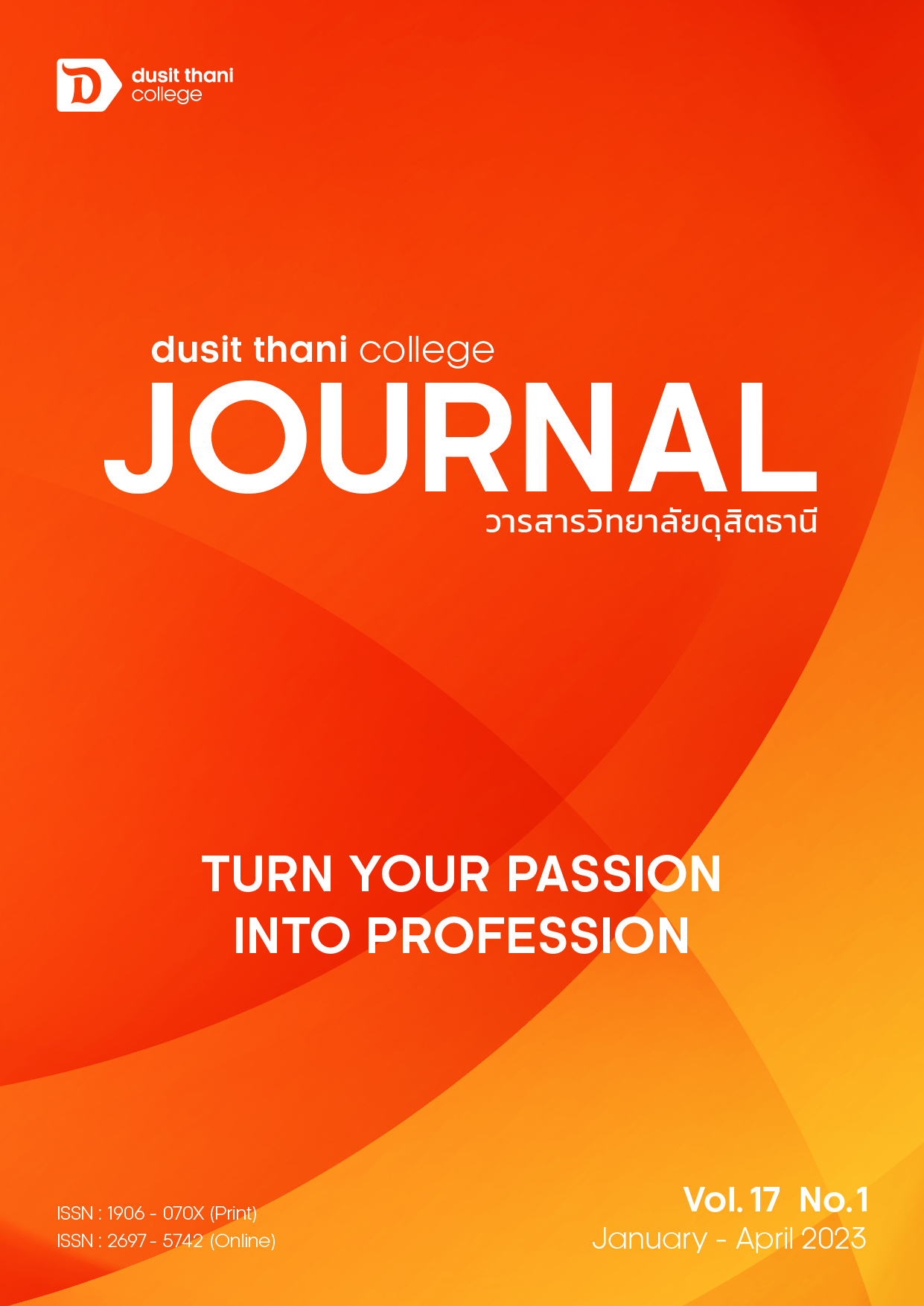Effectiveness of Facebook Advertising for a New Brand of Food Supplement for Plant: A Case Study of Chitonical
Main Article Content
Abstract
The purpose of this research was to study the effectiveness of Facebook advertising in terms of reach, brand recognition, and customer engagement.
Data from advertising campaigns on the Facebook Page Chitonical was studied and analyzed over a four-month period (November 1, 2021 – February 28, 2022). Obtaining information by publishing six campaign advertisements on the Facebook page and collecting data using Facebook Ads Manager.
The findings revealed that advertising on Facebook to increase brand recognition and engagement is the most effective way to rapidly increase the number of Facebook Page likes and followers after campaigns are launched. When all six content campaigns are considered, different content formats appear to produce different results in terms of perception and participation. Customers must understand media formats in order to create compelling content that generates brand recognition and engages people with the brand, whether the material is created using images or videos, as well as intriguing and engaging commentary. This section should be developed to create content for the upcoming advertising campaign.
This study helped entrepreneurs and people who sell online products understand how to choose the best way to advertise on Facebook for successful implementation of the best online marketing communication strategy to sell niche products to consumers who are interested in plant-supplement products, as well as how to properly develop their business in the future.
Article Details

This work is licensed under a Creative Commons Attribution-NonCommercial-NoDerivatives 4.0 International License.
Article Screening Policy
- All research and academic articles to be published must be considered and screened by three peer reviews in the relevant field / article.
- All articles, texts, illustrations and tables published in the journal are the personal opinions of the authors. Editors don't always have to agree. And no responsibility whatsoever is the sole responsibility of the author.
- The articles to be published must never be published. Where did you first publish? And not in the consideration of other journals If the audit found that there has been a duplicate publication It is the sole responsibility of the author.
- Any article that the reader sees as being plagiarized or impersonated without reference. Or mislead the work of the author Please let the journal editor know it will be your greatest blessing.
References
Anga. (2020). What is Facebook advertising. Retrieved from/https://anga.co.th/blog/what-is-facebook-ads/.
Content SHIFU. (2019). Content Marketing: How to create Content Marketing. Retrieved from/ https://contentshifu.com/pillar/content-marketing.
Hootsuite. (2019). What are social media key performance indicators (KPIs)?.Retrieved from/ https://blog.hootsuite.com/social-media-kpis-key-performance- indicators/.
Impact plus. (2020). Social Media KPIs You Really Should Be Tracking and Monitoring. Retrieved from/ ้https://www.impactplus.com/blog/social-media-kpis.
Jekpu, P. (2021). A study of the factors that influence people's decisions to purchase trees online. Independent Studies for Master, Mahidol University.
Kotler, P. (2021). Marketing 5.0 Technology for Humanity. Bangkok: Nation Books.
Pokrasang, M. (2008). Official medical and public health information, interactive health communication, and a health website. Master’s thesis, Chulalongkorn University.
Promma, P. (2013). Information exposure, engagement, and consumer response to communicate via Facebook fan page. Master’s thesis, Chulalongkorn University.
Sitthinunt. (2021). Get to know more Niche Marketing. Retrieved from/https://contentshifu.com/blog/niche-marketing.
Sitvisut. (2019). What is Digital Marketing. Retrieved from/https://www.primal.co.th/th/marketing/what-is-digital-marketing/.


